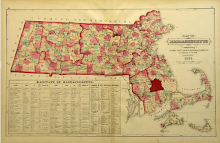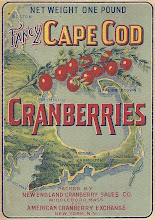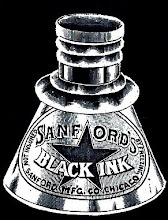Their business is raising ducks for the market, and as it is carried on along up-to-date lines, they have met with success.
This season, which is their second in the business, about 3000 young ducks were hatched out at their place in Middleboro. Early in the year, and preferably before February, the first settings of eggs are placed in the incubators. These are hatched out, and the young ducks are put into the long houses, which are heated by steam.
A continuous gentle heat is applied for four weeks, when the ducks are strong enough to live without it. They are then moved to another house to make room for the new arrivals.
In about from 10 to 12 weeks after hatching the young ducks are big enough to send to market. Just previous to killing they are fed plentifully and they fatten up.
The process of growing and killing the succeeding broods is kept up till nearly winter, when the last of the season's ducks are reserved for breeders.
These will commence to lay at New Years, and will supply the eggs for the hatch of the next year.
Of the eggs set about three-fourths will hatch and of these about 93 percent reach maturity.
The ducks weigh from five to seven pounds each, and when prepared or market will bring about from 15 to 17 cents a pound. The feathers, a valuable by-product, now bring about 48 cents per pound. The revenue from them is sufficient to pay the expenses of putting the grown fowl on the market.
The market for these choice ducks is good and the demand is constantly growing.
To care for ducks is no small task. They need to be watered about five times daily, and the young ones must be fed four times each day. As they grow older three times is sufficient.
The amount of food devoured by the hundreds of ducks now growing on the place is surprising. Each week they consume two tons. This is served them in quantities in proportion to their age.
Three large houses are now used in housing the ducks, but before next season two more large houses will be added. They are built on the side of a hill, where the young ducks can get the benefit of the morning sun, as they run about in their yards.
Although the ducks are close beside a chain of lakes, they are not tempted by the water there, and never fly to the pond. A brook which runs past their coops is in great demand with them, however.
The quacking of the ducks at night has been an annoyance which many duck farmers have sought to overcome, and on this place it has been practically eliminated. Lanterns are hung out around the yard during the night, and the light has a comforting effect on the ducks, and keeps them quiet.
William W. Hall has been engaged in the duck business for three years. He first worked a year at Weymouth, and later commenced the business for himself. He is satisfied that a university education is helpful in his work.
Frank Y. Hall devotes fewer hours daily to the duck farm, his attention being taken up by other duties. He is a member of the school committee of [Lakeville], besides serving as librarian of the public library.
The Hall farmhouse is one of the prettiest on the road from Middleboro to New Bedford. It was formerly known as the Elbridge Cushman place. There are large, well-appointed barns, and a large tract of land.
As noted in the article, Frank Y. Hall served as both a member of the Lakeville School Committee, as well as the town's first librarian. In October, 1904, he resigned both of these positions in order to pursue newspaper work in Philadelphia for a time. William W. Hall as also involved with the Lakeville Public Library, serving as a trustee.
William W. Hall continued to expand the duck farming operation, and by 1910 he was raising 10,000 ducks annually. In 1913, Hall sold the farm to Frank H. Conklin who had previously entered into partnership with Hall and who would own and operate for the next 24 years. In 1918, Conklin employed Merrill Sampson who would purchase the farm from Conklin in 1937. The farmhouse with its elegant mansard-style roof still stands on Main Street, "one of the prettiest on the road".
Sources:
Unidentifed newspaper clippings; August 7, 1904; October 21, 1904; November 4, 1904; James H. Creedon Collection, Middleborough Public Library, Middleborough, MA
Plymouth County Registry of Deeds























+of+Smoky+Mountains+018.jpg)
0 comments:
Post a Comment